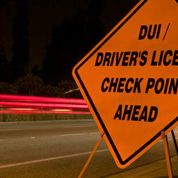The quintessential question prosecutors know to ask an officer with regard to a DWI is whether they have:
“formed an opinion, satisfactory to yourself, that the defendant had consumed a sufficient amount of some impairing substance so as to appreciably impair his mental or physical faculties, or both.”
The typical answer is that in the officer’s opinion, the defendant had consumed a
“sufficient quantity of an impairing substance so that his mental and physical faculties were both appreciably impaired.”
The prosecuting attorney will then inquire into the type of impairing substance, to which the officer typically replies:
“some type of alcohol.”
In North Carolina, the type of questioning that seeks to inquire into the opinion of a lay witness regarding an arrestee’s level of intoxication is deemed to be proper. Officers often base their opinions upon their training and experience; however, they also form opinions based on personal observations. These types of opinions have been regarded by North Carolina courts as lay rather than expert testimony.
Defendants argue that the State’s evidence is insufficient as a matter of law if an officer does not testify as to his opinion that the defendant was “appreciably impaired,” by an “impairing substance.” However, such opinion does not necessarily prove the elements of impaired driving.
The elements the State of North Carolina must establish that the defendant:
- Was under the influence of an impairing substance, and
- Consumed sufficient alcohol that he or she had, at any relevant time after driving, an alcohol concentration of 0.08 or more, or
- Had an amount of a Schedule I controlled substance or its metabolites in his or her blood or urine.
G.S. 20-138.1(a)(1), (2), (3).
So, utilizing these elements, chemical testing proves impairment by determining that .08 and over is impaired for the purposes of a DWI. Further, fact testimony from witnesses can establish that a defendant was “under the influence,” or, in other words, “appreciably impaired.” Therefore, the testimony from the officer, regarding his or her observations, such as glassy eyes and failed field sobriety tests, are often legally sufficient without the lay opinion testimony, to prove impairment. This means that, while the officers opinion may prove helpful, it is not necessary.